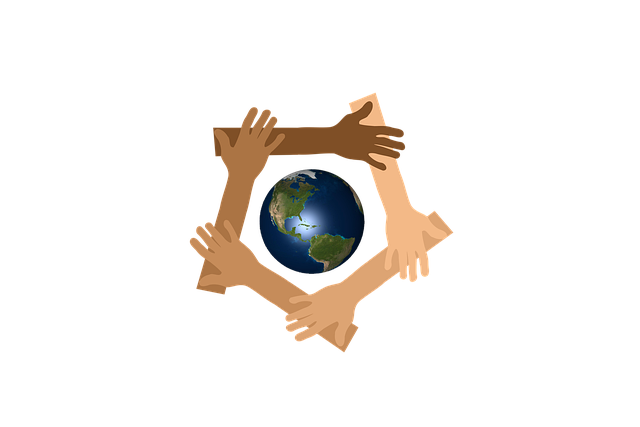In the realm of philosophical and theological discourse, the concept of unity transcends mere idealism; it invites a profound reflection on the nature of humanity’s coexistence. The Bahá’í teachings present a nugget of profound wisdom encapsulated in the phrase “Earth is but one country and mankind its citizens.” This aphorism provokes us to ponder the implications of global unity: What would it mean to embrace the Earth as one country? How would such an orientation challenge our existing notions of identity and belonging?
The Bahá’í Faith, founded in the mid-nineteenth century by Bahá’u’lláh, encapsulates an enduring vision for the future of humanity. Central to this vision is the principle of the oneness of humanity. This notion serves as the bedrock for a harmonious existence, wherein cultural, ethnic, religious, and national distinctions play secondary roles to the shared purpose of living in unity. A crucial aspect of this teaching is its capacity to encourage an egalitarian atmosphere devoid of prejudice and discrimination.
Unity in diversity is a prominent theme within the Bahá’í teachings, suggesting that the myriad cultures and traditions across the globe are not sources of division but rather assets that enrich the human experience. Bahá’ís uphold that diversity should be celebrated, not merely tolerated. This rich tapestry of human existence offers an opportunity for collaboration and mutual enrichment. However, one cannot help but wonder: Is humanity prepared to undergo such transformative shifts in perspective? What barriers must be dismantled for this vision to materialize?
Historically, the gravitation toward unity has been rife with challenges. Deep-seated paradigms of nationalism, ethnocentrism, and sectarianism often fragment societies, impeding the progress toward global cohesion. These tendencies are often instilled during formative years, influencing how individuals perceive others beyond their immediate circles. Overcoming these biases requires a conscious effort; it demands educational initiatives anchored in the principles of compassion, understanding, and respect.
Education is, indeed, a cornerstone of the Bahá’í approach to fostering unity. The teachings encourage a comprehensive educational system that includes not only intellectual development but also spiritual and moral education. This holistic approach aims to nurture individuals who are conscientious global citizens capable of addressing the complexities of modern life. Communities are called to engage in efforts that promote cross-cultural understanding, enabling individuals to see the value in differing perspectives.
Joining hands in a collective pursuit of knowledge and understanding is essential. The Bahá’í community emphasizes dialogue as a vital mechanism for bridging divides. Engaging stakeholders from diverse backgrounds in conversations about common challenges—climate change, social justice, and peace—can foster an environment of empathy and shared concern. The Bahá’í Faith advocates for platforms that encourage these discussions, emphasizing that through dialogue, understanding flourishes, and cooperative action can ensue.
The Bahá’í vision extends beyond mere theoretical constructs. It materializes in practical applications, such as community development projects that aim to alleviate poverty and improve social welfare. These initiatives highlight the practical implications of viewing the Earth as one country. They call upon individuals and organizations to contribute toward a collective goal—the betterment of humanity. In this context, what roles do governments and institutions play? Are they prepared to embrace an ethos of global collaboration?
The challenge lies not only in fostering a spirit of unity but also in combating the lethal ideologies that perpetuate division. The teachings of Bahá’u’lláh assert that a fundamental transformation of human society is imperative. Such a transformation requires an unwavering commitment to the principles of justice and equity. This is crucial when addressing systemic injustices that continue to plague societies worldwide. Resistance to change often arises from entrenched power structures that cling to divisive ideologies. Thus, the Bahá’í community actively encourages efforts to dismantle these structures, advocating for systems that prioritize the wellbeing of all.
In contemplating the implementation of the Bahá’í vision, individuals are prompted to examine their own beliefs and behaviors. The transformative journey requires introspection and a willingness to relinquish prejudices that hinder harmonious relationships. Each individual must grapple with the question: How can I contribute to the vision of unity? Understanding this responsibility is pivotal; it embodies the essence of active engagement in fostering a unified global community.
The Bahá’í teachings present a clarion call for humanity to recognize its interconnectedness. The Earth as one country is not a mere metaphor; it is a paradigm rooted in actionable principles. The teachings encourage individuals to engage in building connections that transcend boundaries, fostering an atmosphere that celebrates universal brotherhood and sisterhood. The acknowledgment of shared grievances, joys, and aspirations lays the groundwork for collaboration.
In conclusion, the Bahá’í vision of unity posits that embracing the Earth as one country is an ambitious yet attainable goal. Achieving this vision demands collective effort, genuine dialogue, and a steadfast commitment to cultivating understanding across cultural divides. As humanity stands at the precipice of transformation, the principles entrenched within the Bahá’í teachings beckon each of us to participate fully in this collective journey toward unity. It invites us to explore how we, as global citizens, can work together to embark on this noble enterprise, challenging ourselves to overcome differences and uphold the infinitude of our shared destinies.
